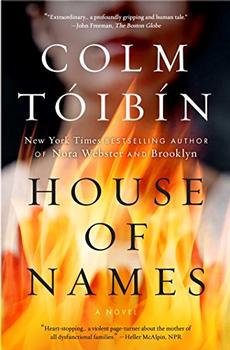Summary | Excerpt | Reading Guide | Reviews | Beyond the Book | Readalikes | Genres & Themes | Author Bio

I know that it was not always thus. There was a time when the gods came in the morning to wake us, when they combed our hair and filled our mouths with the sweetness of speech and listened to our desires and tried to fulfill them for us, when they knew our minds and when they could send us signs. Not long ago, within our memories, the crying women could be heard in the night in the time before death came. It was a way of calling the dying home, hastening their flight, softening their wavering journey to the place of rest. My husband was with me in the days before my mother died, and we both heard it, and my mother heard it too and it comforted her that death was ready to lure her with its cries.
That noise has stopped. There is no more crying like the wind. The dead fade in their own time. No one helps them, no one notices except those who have been close to them during their short spell in the world. As they fade from the earth, the gods do not hover over with their haunting, whistling sound. I notice it here, the silence around death. They have departed, the ones who oversaw death. They have gone and they will not be back. My husband was lucky with the wind, that was all, and lucky his men were brave, and lucky that he prevailed. It could easily have been otherwise. He did not need to sacrifice our daughter to the gods.
My nurse was with me from the time I was born. In her last days, we did not believe that she was dying. I sat with her and we talked. If there had been the slightest sound of wailing, we would have heard. There was nothing, no sound to accompany her towards death. There was silence, or the usual noises from the kitchen, or the barking of dogs. And then she died, then she stopped breathing. It was over for her.
I went out and looked at the sky. And all I had then to help me was the leftover language of prayer. What had once been powerful and added meaning to everything was now desolate, strange, with its own sad, brittle power, with its memory, locked in its rhythms, of a vivid past when our words rose up and found completion. Now our words are trapped in time, they are filled with limits, they are mere distractions; they are as fleeting and monotonous as breath. They keep us alive, and maybe that is something, at least for the moment, for which we should be grateful. There is nothing else.
*
I have had the bodies removed and buried. It is twilight now. I can open the shutters onto the terrace and look at the last golden traces of the sun and the swifts arching in the air, moving like whips against the dense, raked light. As the air thickens, I can see the blurred edge of what is there. This is not a time for sharpness; I no longer want sharpness. I do not need clarity. I need a time like now when each object ceases to be itself and melts towards what is close to it, just as each action I and others have performed ceases to stand alone waiting for someone to come and judge it or record it.
Nothing is stable, no color under this light is still; the shadows grow darker and the things on the earth merge with each other, just as what all of us did merges into one action, and all our cries and gestures merge into one cry, one gesture. In the morning, when the light has been washed by darkness, we will face clarity and singleness again. In the meantime, the place where my memory lives is a shadowy, ambiguous place, comforted by soft, eroding edges, and that is enough for now. I might even sleep. I know that in the fullness of daylight, my memory will sharpen again, become precise, will cut through the things that happened like a dagger whose blade has been whetted for use. .
*
There was a woman in one of the dusty villages beyond the river and towards the blue mountains. She was old and difficult but she had powers that had been lost to all others. She did not use her powers idly, I had been told, and most of the time she was not willing to use them at all. In her village she often paid imposters, women old and wizened like herself, women who sat in doorways with their eyes narrowed against the sun. The old woman paid them to stand in for her, to fool visitors into believing that they were the ones with the powers.
Excerpted from House of Names by Colm Toibin. Copyright © 2017 by Colm Toibin. Reprinted with permission of Scribner, a Division of Simon & Schuster, Inc.
Your guide toexceptional books
BookBrowse seeks out and recommends the best in contemporary fiction and nonfiction—books that not only engage and entertain but also deepen our understanding of ourselves and the world around us.